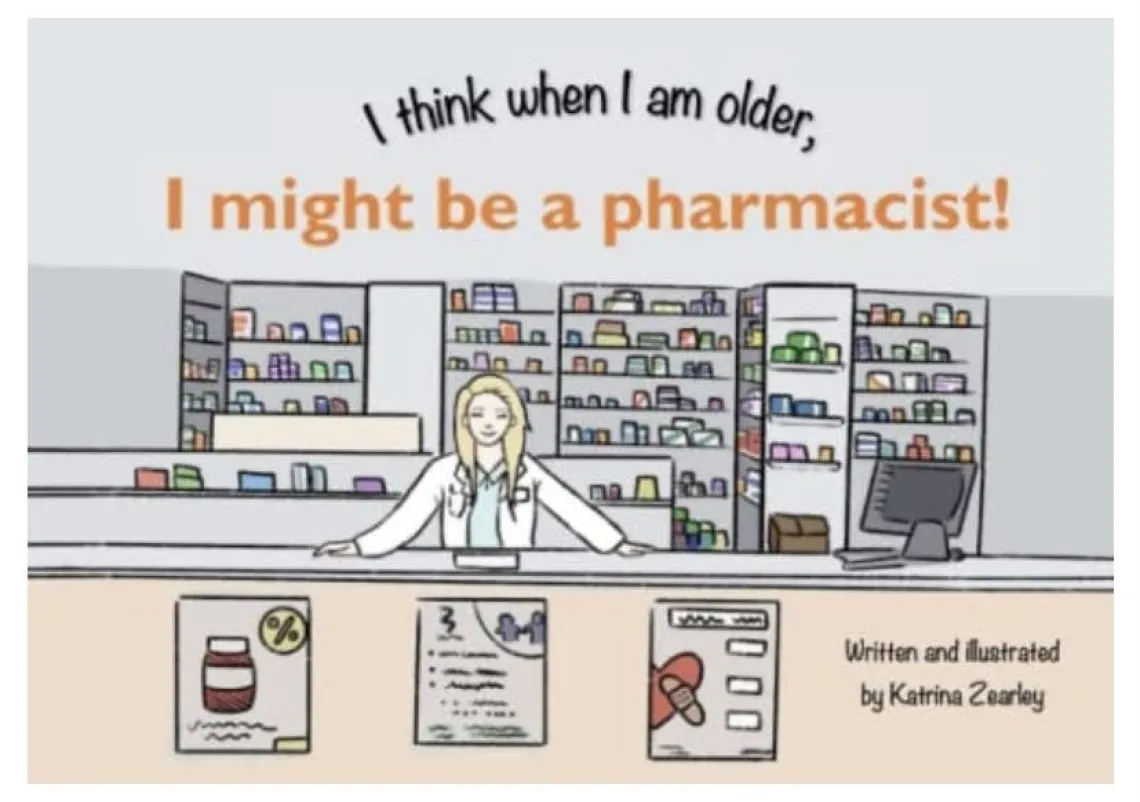Taking Science Writing Further

Undergraduate Students in Science Writing Course Can Become Published Authors
University of Arizona pharmaceutical sciences students who excel in a Scientific Writing course are extended an exclusive invitation to become published authors.
The Scientific Writing course, offered by the R. Ken Coit College of Pharmacy as part of the Bachelor of Science in Pharmaceutical Sciences major, introduces best practices of reading and writing basic and clinical science papers, manuscripts, and research proposals. Most importantly, students learn how to communicate effectively and accurately with experts in the field and patients in a clinical setting.
The course takes a unique turn for the top performing students in the class. These students are invited by Associate Professor Jennifer Schnellmann, PhD, to participate in a writing program focused on honing their skills.
“In the course, at the 10-week mark, I identify the League of Ten,” Schnellmann said. “Ten students of incredible ability and I offer them a book contract. They complete the course right then with no more obligations for assignments or attendance, sign the book contract and produce a book of their choice and on a topic of their interest by the course end date.”
Among the 10 students chosen earlier in the academic year was Jason Canizales.
Canizales was hesitant to participate at first. With a course load of 21 units, he was concerned about taking on too much work. But after speaking with other students in his class, he realized how participating in the writing program would benefit his future career.
“I have to be a risk taker and I will need to promote myself to other employers,” he said. “The writing program was my opportunity to show that part of myself and so I’ve been giving it my all ever since.”
Students who participate have the choice of writing independently or contributing to a volume of work.
Canizales chose to write about five topics: ethics of human enhancement, addiction, deceptive drug marketing, vaccination and misinformation, and euthanasia.
One of the key lessons he learned since beginning the class is learning more about writing for a scientific audience and how to use evidence-based research.
“You have to back up everything you say with studies and substantial evidence,” he said. “And everything I’ve learned in the class I’ve found to be useful since I want to pursue a medical career in gastroenterology.”
 After he finishes his contributions, Canizales will join prior cohorts who have partnered to create a volume of persuasive writings discussing topics such as lethal injection, abortion, and opioids. Three volumes have been published in the “Controversies in Pharmacology” book series.
After he finishes his contributions, Canizales will join prior cohorts who have partnered to create a volume of persuasive writings discussing topics such as lethal injection, abortion, and opioids. Three volumes have been published in the “Controversies in Pharmacology” book series.
“That we can, in one course devoted to the most complex and demanding writing style, improve the communication skills of students to the degree that they can publish independent work is uncommon. Most people tell me it is impossible. However, every semester, we add new authors to our growing list,” Schnellmann said.
Students who have worked independently have focused on topics other than pharmacy. One student wrote about Kartchner Caverns and the family behind its care and stewardship. Another published a book of family recipes and the unique blending of Mexican and German influences.
Katrina Zearley, a first-year PharmD student in the College of Pharmacy, has been published three times. She contributed to a volume in the “Controversies in Pharmacology” series and independently wrote “Opioids, Opiates, and Overdose: A Quick Guide to Opioids, the History, and the Epidemic” and a children’s book called “I Think When I am Older, I Might Be a Pharmacist!”
Zearley said the idea for her children’s book came after she realized there weren’t many books about pharmacy for a younger demographic.
“Pharmacy is something kids should know about because it is a critical part of the health care system,” she said.
Zearley also wanted to make sure her book was accessible, engaging, and something kids would want to read.
“I wanted my book to be different. I’m going to do the illustrations myself, it’s going to rhyme and it will be a pharmacy book for children,” Zearley said. “With this goal in mind, I wrote the book using the knowledge I gained through my experience in school.”
She completed the book in a year and a half and has since been featured by “Pharmacy Times.” In the article, she described how writing the children’s book helped to discover her own reasons for becoming a pharmacist.
“To quote one of my favorite lines from the book, ‘Like any other job in health care, it can be difficult, I’ll admit. But when you know you help so many people, that’s what makes the job worth it,’” she wrote.

